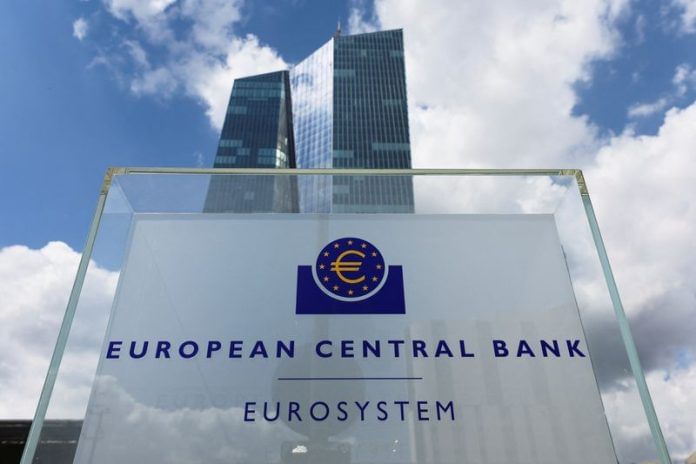FRANKFURT (Reuters) -The European Central Bank is already factoring climate-related risk into the assessment of collateral used to borrow money from the bank but this rarely leads to credit rating changes, a blog post published by the ECB said on Friday.
The ECB’s 2021 climate action plan made the integration of climate risks into its collateral framework a key priority and the bank expects climate risk to be factored into credit ratings of assets posted by banks when they borrow from the central bank.
“While climate risks are widely recognised, they rarely lead to rating changes,” the blog post, which does not necessarily represent the ECB’s views, argued. “Several persistent challenges still limit the full and consistent integration of climate change risk into credit ratings.”
The ECB is using both its own in-house credit assessment systems and external rating agencies to determine climate risk but neither method has so far had a huge impact on collateral valuation.
When using its in-house system, the share of credit ratings affected by climate risks is below 4% and the adjustments made are typically limited to one rating grade, the blog said.
In the case of external agencies, environmental, social, and governance factors influence approximately 13% to 19% of all rating actions across the major agencies but climate change-specific downgrades account for only 2% to 7%, the blog post argued.
While actual risk may be greater, assessment is difficult because banks can mask the vulnerabilities of some debtors, risk mitigation strategies can reduce their perceived exposure and because rating horizons are short- and medium-term, whereas climate risks tend to be long term, the blog said.
“Furthermore, reliable, granular climate change-related data remain scarce, particularly for smaller issuers, sovereigns and structured finance,” it argued.
(Reporting by Balazs KoranyiEditing by Tomasz Janowski)
Disclaimer: This report is auto generated from the Reuters news service. ThePrint holds no responsibility for its content.






